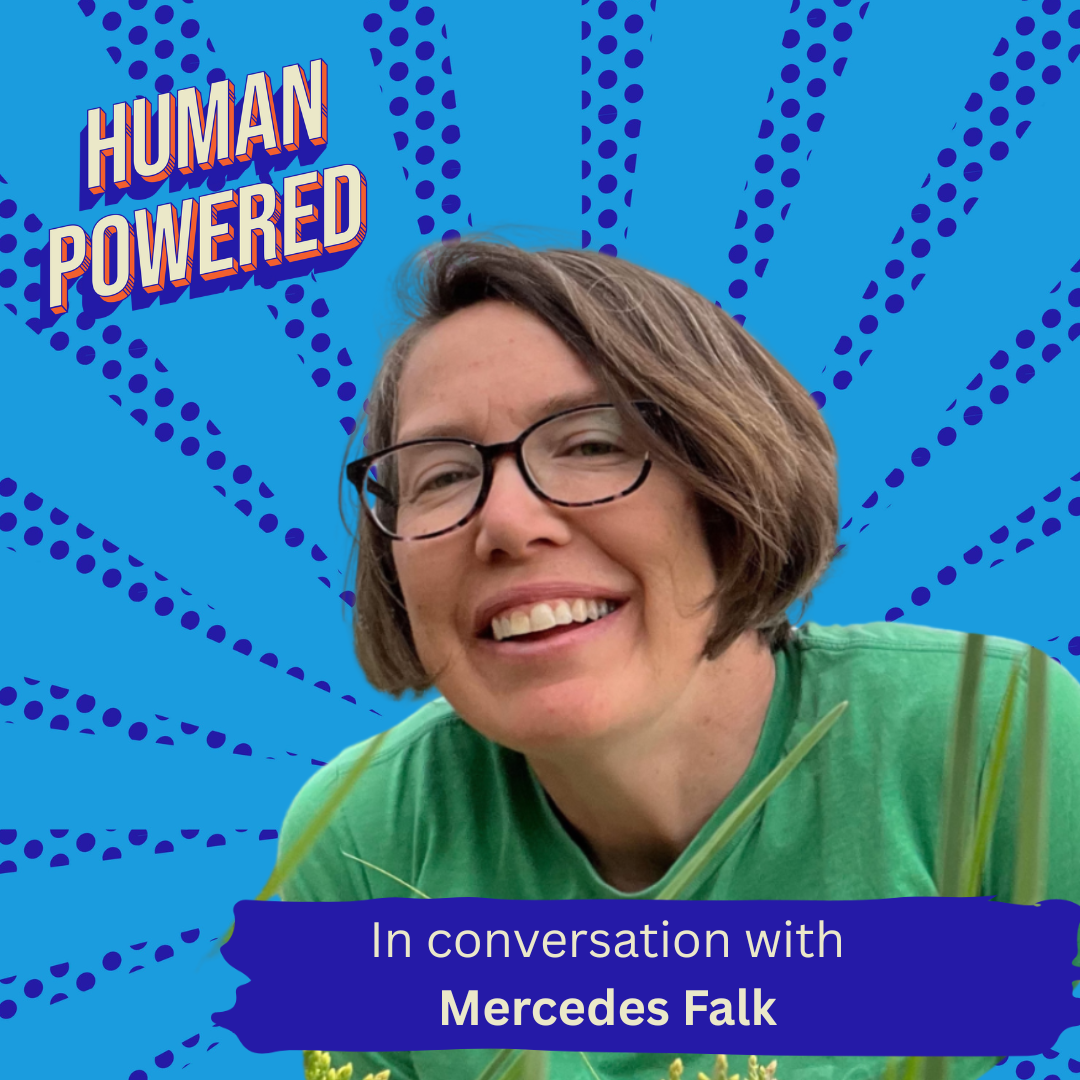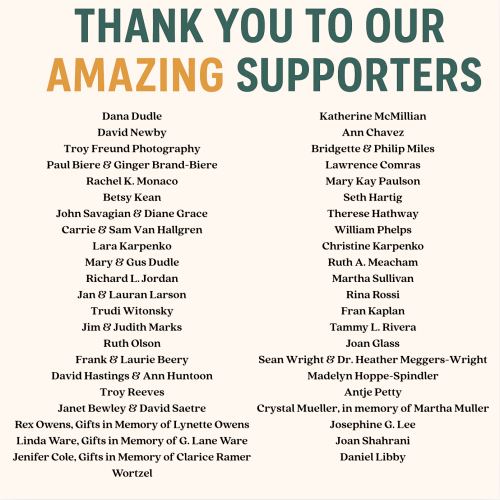Dear Wisconsin Humanities Family, Supporters, and Friends,
When I came to work with Wisconsin Humanities, I was so excited by its mission. I believed that what the organization did was deeply important and I agreed with Max Harris, the director then, that the humanities help people gain new perspectives on their fellow humans. Over time, I've broadened my thinking about what we do. "Perspectives" feels a bit clinical. I believe that what we do speaks to the heart as well as the head -- and it must!
Speaking to the heart matters because it is the best way to offer new perspectives even when there are obstacles to peoples' natural curiosity, like fear or bias. You have to touch the heart if you're going to foster a spirit of openness -- openness that may become neighborliness and trust, and ultimately enlarge the definition of "us."
This week I'm really happy to share the latest episode of our Human Powered podcast, which is a conversation with Mercedes Falk, one of our Wisconsin Humanities Fellows whose training was cut short due to our loss of federal funding. Mercedes works with an organization called Puentes/Bridges in western Wisconsin that deepens relationships and increases mutual understanding among dairy farmers, their immigrant workers, and those workers' families in Mexico. I hope you'll check it out, as well as the online version of our Immigrant Journeys exhibit that toured Wisconsin in 2019-22.
A perspective from dairy land where immigrants work
These days the national news is full of stories about deportations and ICE raids, and the latest legislation that will vastly increase the ICE budget. In Wisconsin, studies by the University of Wisconsin–Madison School for Workers have documented the large portion of farm labor -- estimated at 70% -- done by immigrants, many of whom are undocumented. Jen Rubin and Jessica Becker sat down two weeks ago with Mercedes Falk, the director of Puentes/Bridges, an organization based in Alma that works to bridge the cultural and linguistic gap between dairy farmers and their Mexican employees. In this conversation, we hear about the cultural shift that has happened over the past decades as a result of Puentes’ work and learn why Falk applied to take part in Wisconsin Humanities’ Community Powered training program, becoming a Wisconsin Humanities Fellow. The year-long training session was cut short after only a couple of months when WH lost federal funding, but Falk offers her thoughts on what she sees as the value of skills taught in the program, including humanities-based methods of connecting through personal stories. She says that it’s at moments like these that community relationships really matter to help everyone feel safe. We promise you'll find hope in her stories. Listen today!





